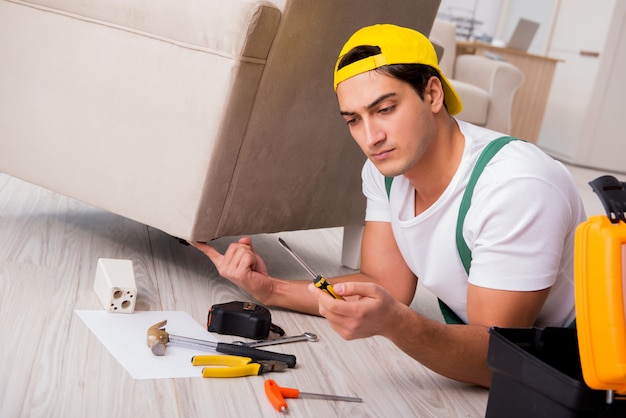Living in a manufactured home has become an increasingly popular option for many people looking for affordable housing. These homes, often referred to as mobile homes or trailers, are built in factories and then transported to their final locations. Manufactured homes offer a variety of benefits and drawbacks that potential homeowners need to consider. This article delves into the pros and cons of living in a manufactured home, exploring aspects such as cost, customization, and longevity. With the rise of communities like Reportage Village, understanding the intricacies of manufactured homes is more relevant than ever. By the end of this article, you will have a clearer understanding of whether a manufactured home is the right choice for you.
What is a Manufactured Home?
A manufactured home is a type of housing that is built in a factory setting and then transported to a location where it will be occupied. Unlike traditional homes built on-site, manufactured homes are constructed according to the federal building code known as the HUD Code. These homes have come a long way since their inception, evolving from basic trailers to sophisticated residences that can include high-end amenities and stylish designs. It is crucial to distinguish between manufactured homes, modular homes, and site-built homes as they each have their own unique construction processes and regulations.
The Pros of Living in a Manufactured Home
Cost-Effective Living
One of the main advantages of living in a manufactured home is the lower cost compared to traditional site-built homes. The factory-setting construction process helps reduce expenses, making these homes more affordable for many people. Additionally, specialized financing options are often available for manufactured homes, allowing prospective homeowners to have flexible payment plans.
Affordability
Living in a manufactured home is often much cheaper than living in a traditional home in several ways. Firstly, the initial investment is significantly lower. Additionally, utility costs are often reduced due to the smaller living space and more efficient construction materials. The affordability extends to day-to-day living expenses, making it a viable option for those on a budget.
Customization and Modern Features
Many people are attracted to the customization options available with manufactured homes. Unlike traditional homes, manufactured homes can be tailored to meet specific desires and needs. Modern manufactured homes come with a variety of amenities that closely mimic those found in traditional homes. Enhanced insulation, smart home features, and luxury finishes are now readily available.
Energy Efficiency
Manufactured homes are often constructed with energy-efficiency in mind. Eco-friendly building materials and state-of-the-art insulation contribute to lower utility bills and a smaller carbon footprint. These homes frequently comply with the latest energy codes and standards, making them a responsible choice for environmentally-conscious individuals.
Quick Construction Time
The construction process for a manufactured home is notably faster than for a traditional home. Since the home is built in a factory and then transported, external factors like weather do not delay the building process. The controlled environment ensures a quicker, more reliable production timeline, making it ideal for those who need housing solutions promptly.
Flexibility in Location
Manufactured homes offer a level of flexibility that traditional homes simply cannot. These homes can be easily relocated if necessary, making them an attractive option for those who wish to change locations without the long-term commitment of a traditional home. Additionally, land costs associated with manufactured homes are often lower, especially in areas like Reportage Village, compared to those for traditional homes.
The Cons of Living in a Manufactured Home
Depreciation in Value
A significant downside to manufactured homes is their tendency to depreciate in value over time. Unlike traditional homes, which often appreciate, manufactured homes can lose value similarly to vehicles. Various factors, including the age of the home and market conditions, influence this depreciation.
Limited Space and Design Options
Another disadvantage is that manufactured homes typically offer less living space than traditional homes. The architectural design options are also more limited, which might not satisfy everyone’s preferences. For families needing ample room, this could be a significant drawback.
Land Ownership Issues
Finding suitable land for a manufactured home can be challenging. Many people opt to place their homes in communities or parks designated for manufactured homes, but these come with their own set of rules and fees. Zoning laws and restrictions can further complicate the process of land acquisition.
Quality Perception
Manufactured homes often suffer from a negative quality perception. However, this is not always justified. While some older models may not meet all quality standards, modern manufactured homes are often built with excellent materials and craftsmanship. Still, there can be variability in build quality among different manufacturers.
Addressing Common Concerns
Financing and Insurance Challenges
Financing and insuring a manufactured home can be more complicated than for a traditional home. Some lenders are hesitant to offer loans for manufactured homes, and the interest rates may be higher. Insurance costs can also be higher, especially if the home is located in a mobile home park rather than on privately-owned land.
Maintenance and Repairs
Maintenance is another area where manufactured homes have distinct considerations. These homes may require more frequent repairs, and some aspects of maintenance can be more complicated compared to traditional homes. However, with proper care, the lifespan of a manufactured home can be greatly extended.
The considerations for living in a manufactured home extend beyond the initial cost and convenience. To better illustrate the core advantages and disadvantages, below is a comparative table:
| Advantages | Disadvantages |
|---|---|
| Lower Cost | Depreciation in Value |
| Quick Construction | Limited Living Space |
| Customization Options | Land Ownership Issues |
| Energy Efficiency | Complex Financing |
| Location Flexibility | Variable Build Quality |
Conclusion
In summary, living in a manufactured home has its own unique set of pros and cons. The cost-effectiveness, quick construction time, and flexibility make them appealing to many, especially in planned communities like Reportage Village. However, issues like depreciation, limited space, and financing challenges need to be carefully considered. By weighing these factors, potential homeowners can make informed decisions about whether a manufactured home is the right fit for their lifestyle and financial situation.
Frequently Asked Questions
Is it difficult to secure a loan for a manufactured home?
Securing a loan for a manufactured home can be more challenging than for a traditional home, but options are available through specialized lenders and government programs.
How long does a manufactured home last?
With proper care and maintenance, a manufactured home can last 30-55 years or even longer.
Are there restrictions on where I can place a manufactured home?
Yes, zoning laws and community regulations may restrict where you can place a manufactured home. It’s essential to research local laws before purchasing.
Do manufactured homes appreciate in value?
Manufactured homes typically depreciate in value over time, much like vehicles, but this can vary based on location, upkeep, and market conditions.
What kind of foundation is needed for a manufactured home?
Manufactured homes can be placed on various foundations including slabs, piers, and crawl spaces, but must meet local building codes and manufacturer guidelines.





















+ There are no comments
Add yours